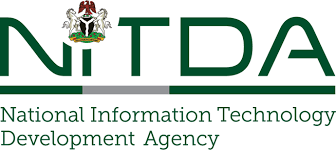Microsoft has announced a significant investment of $1 million aimed at training one million Nigerians in Artificial Intelligence (AI) and digital skills over the next two years.
The training program is expected to be implemented through partnerships with local organisations including Tech4Dev and Data Science Nigeria.
These collaborations will focus primarily on enhancing employability among Nigerian youth through specialised education in AI and cybersecurity.
The initiative was unveiled during an event in Lagos as part of the technology giant’s broader strategy to strengthen its footprint across Africa.
Microsoft’s Nigeria and Ghana MD Olatomiwa Williams noted that this initiative aligns with the company’s mission to empower individuals and organisations in navigating the AI-driven industrial revolution.

“This Nigerian investment builds upon Microsoft’s expanding portfolio of commitments across Africa,” she said.
Earlier in May 2024, the company partnered with G42 to invest $1 billion in Kenya’s digital infrastructure development.
The Kenyan investment includes plans for a geothermal-powered data center and an innovation hub to foster technological growth in East Africa.
Microsoft’s Commitment to to Close AI Skills Gap in Africa
These regional initiatives collectively demonstrate Microsoft’s strategy to democratise access to advanced technological education throughout the continent.
According to TechInAfrica, some observers raised questions about the program’s logistics, noting that the $1 million budget for training one million people equates to just $1 per trainee.
Microsoft has not yet disclosed specific details regarding the program’s structure, curriculum depth, and certification processes
The company’s focus on technological skills development coincides with similar initiatives from other tech companies.
Google recently announced a ₦2.8 billion ($1.7 million) grant supporting AI talent development in Nigeria, part of its larger $5.8 million commitment to digital skills advancement across Sub-Saharan Africa.
Microsoft’s President for Africa Lillian Barnard, highlighted AI’s economic potential for the continent, referencing studies suggesting artificial intelligence could significantly boost Africa’s GDP by 2050.
“Through these strategic investments in both human capital and infrastructure, Microsoft aims to position Africa as a competitive participant in the evolving global digital economy,” she said.
The success of Microsoft’s Nigerian training initiative will ultimately depend on implementation quality, effective collaboration with local partners, and the ability to scale programs to address diverse educational needs across different population segments.
Follow us on WhatsApp, Telegram, Twitter, and Facebook, or subscribe to our weekly newsletter to ensure you don’t miss out on any future updates. Send tips to editorial@techtrendsmedia.co.ke







